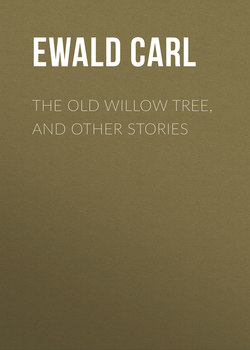Читать книгу The Old Willow Tree, and Other Stories - Ewald Carl - Страница 3
The Old Willow-tree
3
ОглавлениеNow years passed, as they are bound to pass.
Spring came and summer, autumn and winter. Rain came and snow came, sunshine and storm, good days and bad. The birds flew out of the country and flew back again, the flowers blossomed and withered, the trees burst into leaf and cast their leaves again, when the time came.
The willow-cutting grew and grew quickly, after the manner of the family. He was now quite a tree, with a thick trunk and a top with many branches.
But there was no denying it: he was not a poplar. And his fellow-members of the avenue were greatly displeased with him:
"Isn't it possible for you to grow taller in stature?" asked the nearest poplar. "You ought never to have been here, but, once you've joined the avenue through an accident, I should like to ask you to stretch yourself up a bit."
"I'll do my best," answered the willow-tree.
"I fear your best isn't good enough," said the poplar. "You have no grip at all to keep your branches in with. They hang quite slack on every side, just as if you were a common beech or birch or oak or whatever the ordinary trees are called."
"Do you call me ordinary, you windbag?" said the oak.
The poplar did not mind a jot what the oak said, but went on admonishing the willow-tree:
"You should take example by the squire's wife," he said. "At first she was no better than a common kitchen-maid. She used to scour the pots and make up the fire and stir the milk when it boiled. I used often to see her go down the avenue bare-armed and bare-headed, with a pail in her hand and her skirts tucked back."
"So did we … so did we … so did we," whispered the poplars along the avenue.
"Then the squire fell in love with her and made her his wife," said the poplar. "Now she goes in silk, with a train to her dress and ostrich-feathers on her head and gold slippers on her feet and long gloves from Paris on her hands. She looks down from on high: only yesterday she was driving along here in her smart turn-out with the four bays."
"We saw her … we saw her … we saw her," whispered the poplars along the avenue.
"She joined the avenue, do you see?" said the poplar. "She learnt to hold herself erect and whisper; and now she whispers and holds herself erect. I think you might profit by her example. After all, you belong to the family, even though you are not one of the real poplars; so it ought to be easier for you than her."
"I'll do my best," said the willow-tree.
But nothing came of it. His branches kept on growing out at the sides and the whole tree was not more than half as tall as the lowest poplars. For the rest, he was quite nice and comfortable-looking, but that's not what counts in the smart world.
And the poplars grew more and more annoyed every day.
They themselves stood stiff and straight and strutted and gave no more shade than their trunks were able to cast. But under the willow there was quite a big shady place.
"He's ruining the whole avenue," said the nearest poplar.
"The whole avenue … the whole avenue … the whole avenue," whispered the poplars.
Then, one regular sunny summer's day, the squire came walking along. He took off his hat, wiped the perspiration from his forehead and sat down in the shade of the willow:
"Thank you for your shade, you good Willow-Tree," he said. "Those confounded poplars stand there and strut and don't give as much shade as the back of my hand. I think I'll cut them all down and plant willows in their stead."
For that happened to be his mood that day.
"Did you hear the squire praise me?" said the willow-tree, when he had gone.
"Goodness gracious!" said the nearest poplar. "Did we hear him? It's a perfect scandal! He talked just like a common peasant. But, of course, that comes of marrying a kitchen-maid. It's the truest thing that ever was said, that birds of a feather fly together."
"Birds of a feather fly together … fly together … fly together … together … together," whispered the poplars all along the avenue.
The oak on the little hillock in the fields twisted his crooked branches with laughter. The wild rose, whose hips were already beginning to turn red, nodded to the willow-tree:
"Every one has his position in life," she said. "We have ours and the smart ones theirs. Now I wouldn't change with anybody."
"Still, one would like to give satisfaction in one's position," said the willow-tree and sighed!
